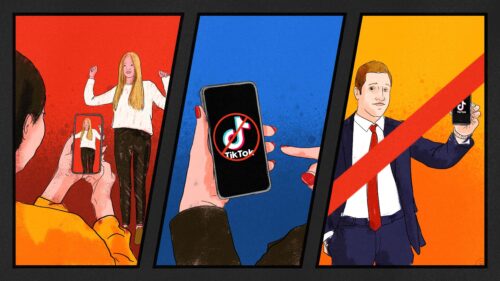The perils of Chinese work culture
Why do the Chinese work so hard? And is it a good thing?

During the Labor Day holiday on May 1 at my internet company, I was assigned to work with a full-time Chinese colleague based in New York. When I finally reached her, she didn’t know she needed to write an extensive analysis about brands going overseas. Indeed, the boss never consulted us whether we wanted, had the time, or knew how to do the extra work, but the announcement sat in our group chat. My colleague said she would contact me later, as it was late — 10:30 p.m. — in New York.
As a student intern in China, I immediately felt that the New York team was lazy and impolite. I would have been scolded if I couldn’t be reached, and we’d never complain if it was late. Besides, it was just 10:30 p.m.
The cooperation was mostly a disaster. Neither of us knew how to write such an analysis, and there was the time difference. She called me around noon in New York — that is, midnight in China. Things went awry when the boss asked us to give him a weekly update — preferably on weekends. I agreed. She didn’t. “It’s not recommended to work on weekends,” she told me.
It dawned on me for the first time how ridiculous I had been, working late and on weekends, deeming it a norm because everyone in the China team did. I was constantly stressed, couldn’t eat properly, and often stared at the computer screen for hours, wondering why I needed to work. And I was just an intern!
Why were things this way? I managed to come up with several explanations. For one, the downward pressure on China’s economy is still striking, hence the gloomy prospects for job opportunities. According to Zhilian, the country’s online recruitment portal, as of mid-April, when most recruiting wrapped up, only 46.7% of graduates seeking jobs secured an offer, compared to 62.8% in the same period of 2021. About 15.4% signed a contract, down 2.9 percentage points from last year.
The declining job market is also amplified on the internet, as opinion leaders have fixated on the “15.4%” as if it was the employment rate. “Out of school means out of work” has become a catchphrase.
There is also the education system in China, which trains us to be workaholics. A gauntlet of grueling tests since childhood — gaokao, yes, but also our high school and middle school entrance exams, not to mention our version of the GRE and a slew of prep tests — have made us accustomed to elimination through competition. The standards are straightforward. Since you are not smart enough, work longer. As one idiom goes, “A slow sparrow should make an early start.” After you work long enough, work more. “Those who are better than you work harder. How can you not?”
Then there are the fresh memories of the suffering of past generations. For me, it was about my grandparents eating leaves and branches during the Great Famine, and my parents undergoing mass layoffs when state enterprises went private as China moved from a planned economy to a market economy.
Around mid-May, with these revelations fresh in my mind, I made the decision that I would update the boss myself. I wrote him, “People overseas might find it hard to work on weekends. Could the three of us discuss it next week? But if it’s inconvenient, I can give you an update this weekend.”
My boss was furious. He sent us both a message: you can quit the assignment if you think I push you too hard.
I apologized. My colleague called the boss and then apologized to me, saying she’d quit the analysis. Turned out one could quit?
Scholars have examined workaholism across various countries and found that employees in China grade higher in workaholism than those in Western European countries, but are less work-engaged, as few enjoy the work.
True. The sight of the analysis upset me, but I carried on, doubts mounting. A senior colleague told me our situation could be explained by the famous Stanley Milgram experiment on obedience to authorities. Only those who obey the boss and handle excessive pressure are praised, and therefore remain in the workplace. Soon a new intern came to tell me eagerly that the boss praised her because she was still working at 11 p.m.
In my research of brands going overseas, I thought about the localization of language, products, channels, etc., but not much about work ethics, until TikTok’s Chinese owners touted its aggressive corporate ethos to a country that championed a four-day week. As early as 2018, venture capitalist Mike Moritz wrote, “Silicon Valley would be wise to follow China’s lead.”
But what TikTok got was a staff exodus, and Moritz received not a few counterarguments on Quora. I wonder, since more Chinese brands are looking to expand overseas, and “culture clashes” will continue, wouldn’t it be wise for Chinese internet giants to learn more about work habits abroad, and adjust accordingly?
After being torn for a month, I resigned from my firm. A week later, my former New York colleague left as well.





